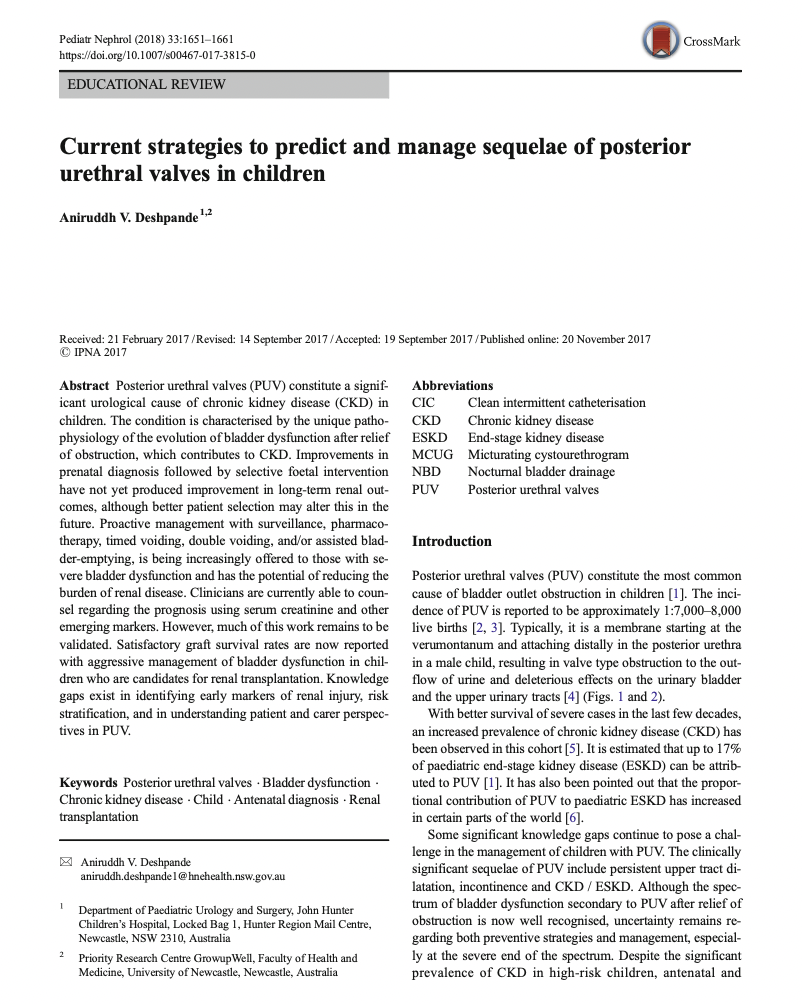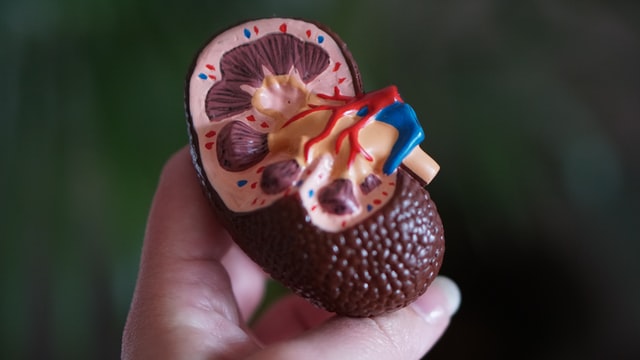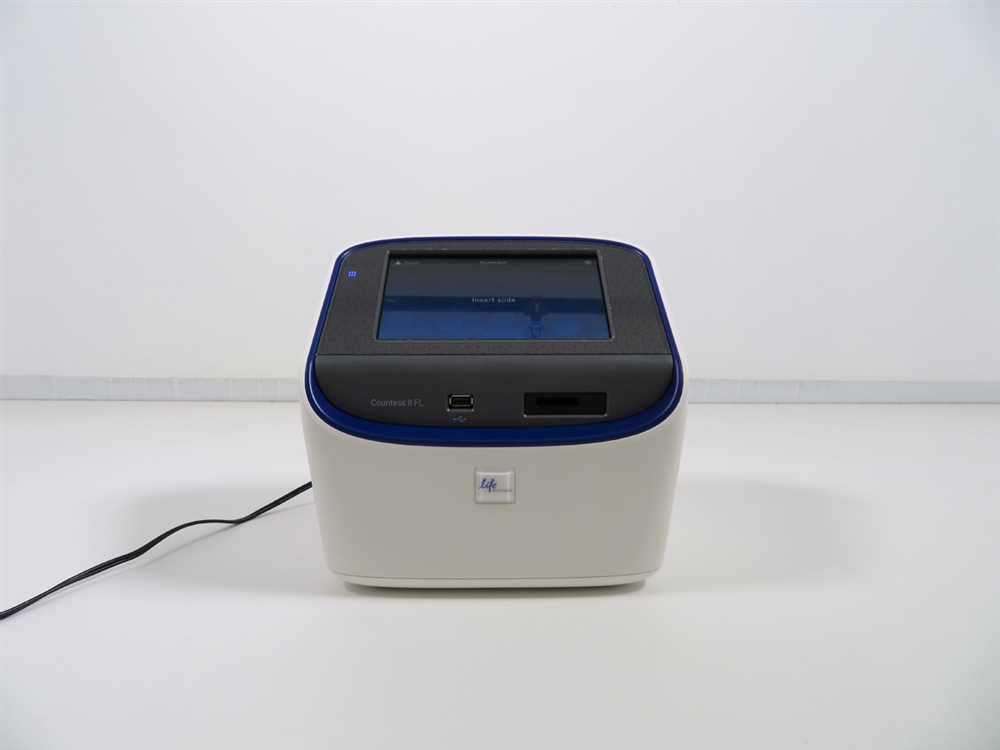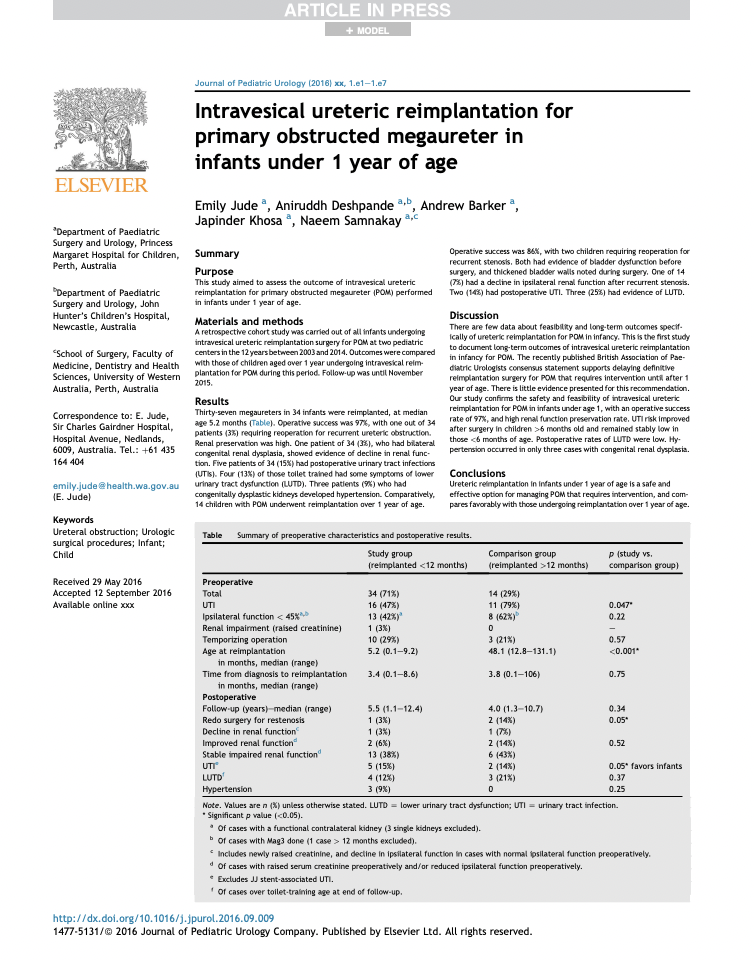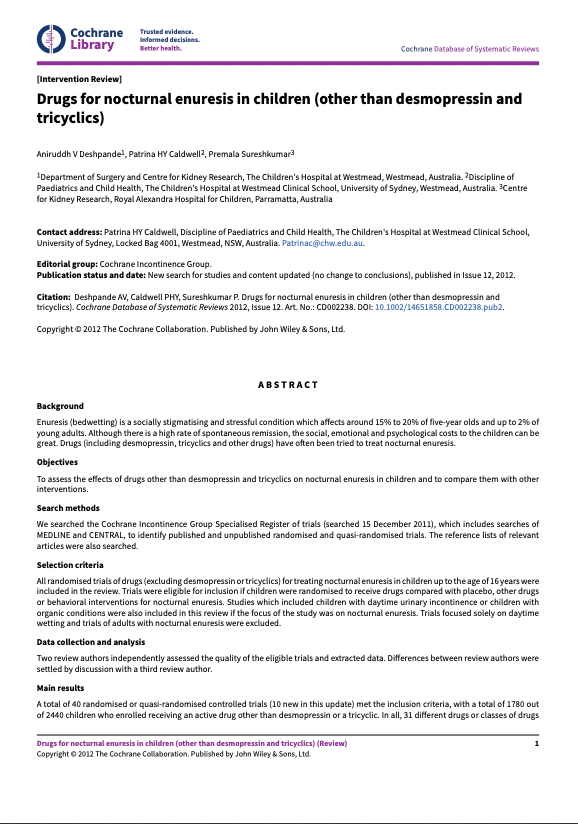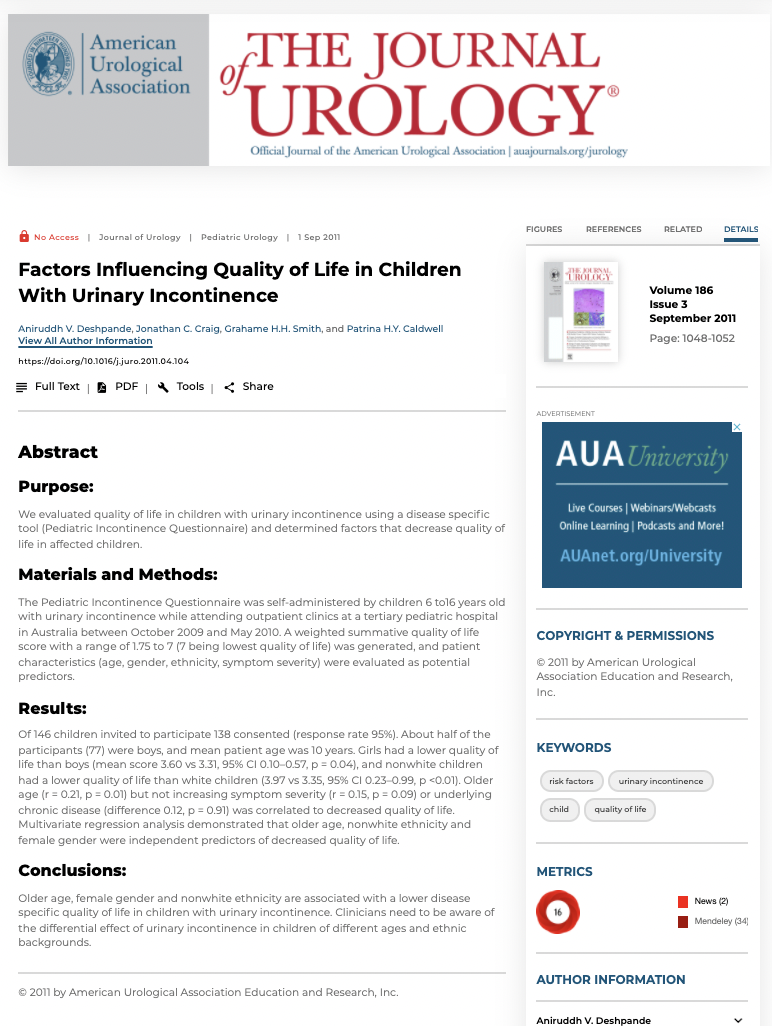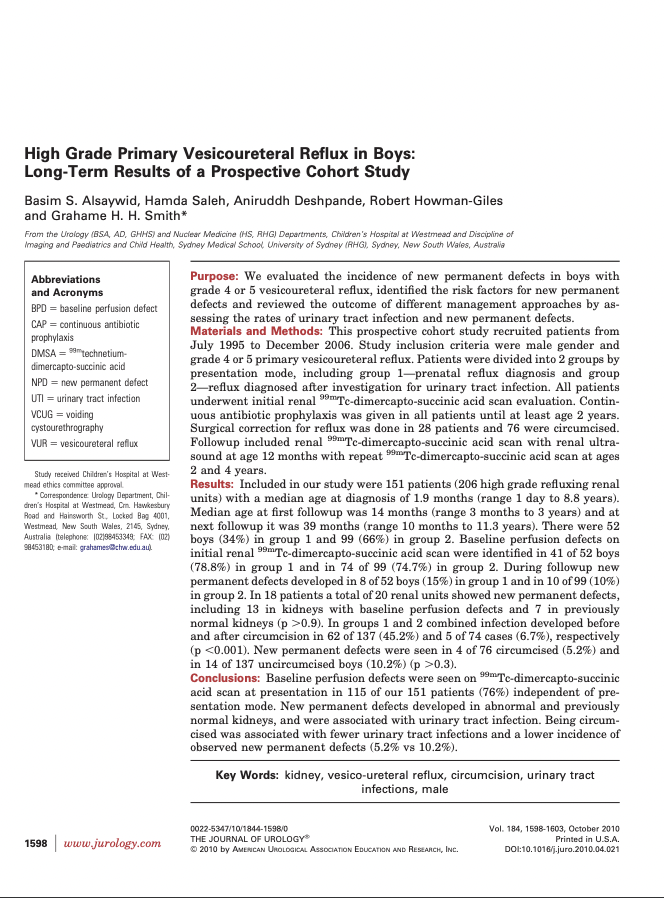Posterior urethral valves (PUV) constitute a significant urological cause of chronic kidney disease (CKD) in children. The condition is characterised by the unique pathophysiology of the evolution of bladder dysfunction after relief of obstruction, which contributes to CKD.
Acute kidney injury is increasing in incidence globally and there is a strong association between acute kidney injury and the development of chronic kidney disease.
To study and define the baseline abnormalities in the bacteria present in the absence of infection in the urine and feces (microbiome) in children with bladder bowel dysfunction.
This study aimed to assess the outcome of intravesical ureteric reimplantation for primary obstructed megaureter (POM) performed in infants under 1 year of age.
Objectives: To assess the effects of drugs other than desmopressin and tricyclics on nocturnal enuresis in children and to compare them with other interventions.
We evaluated quality of life in children with urinary incontinence using a disease specific tool (Pediatric Incontinence Questionnaire) and determined factors that decrease quality of life in affected children.
We evaluated the incidence of new permanent defects in boys with grade 4 or 5 vesicoureteral reflux, identified the risk factors for new permanent defects and reviewed the outcome of different management approaches by assessing the rates of urinary tract infection and new permanent defects.

